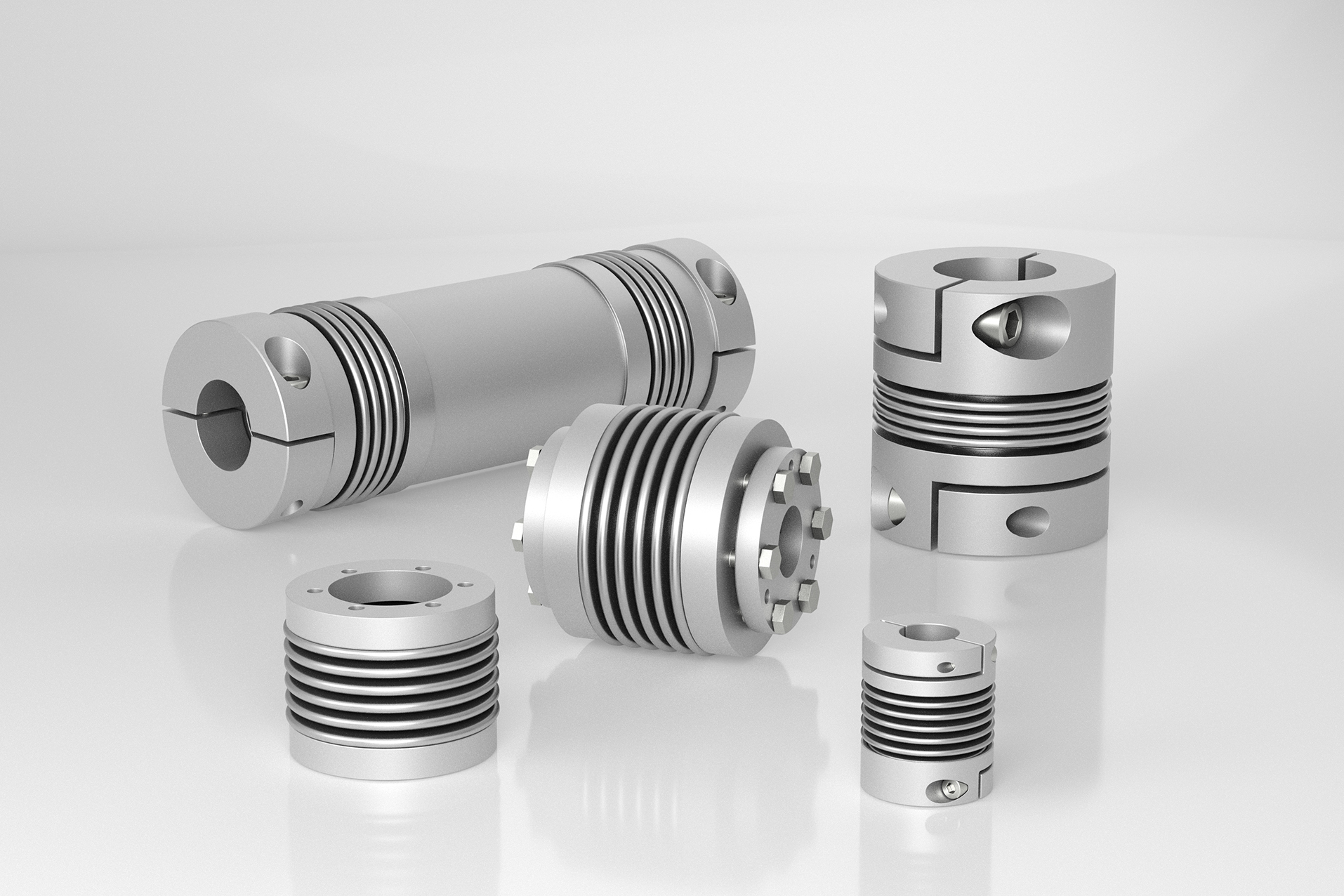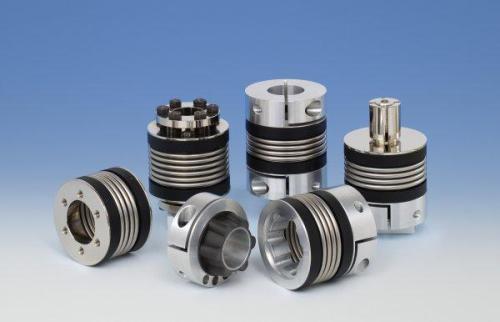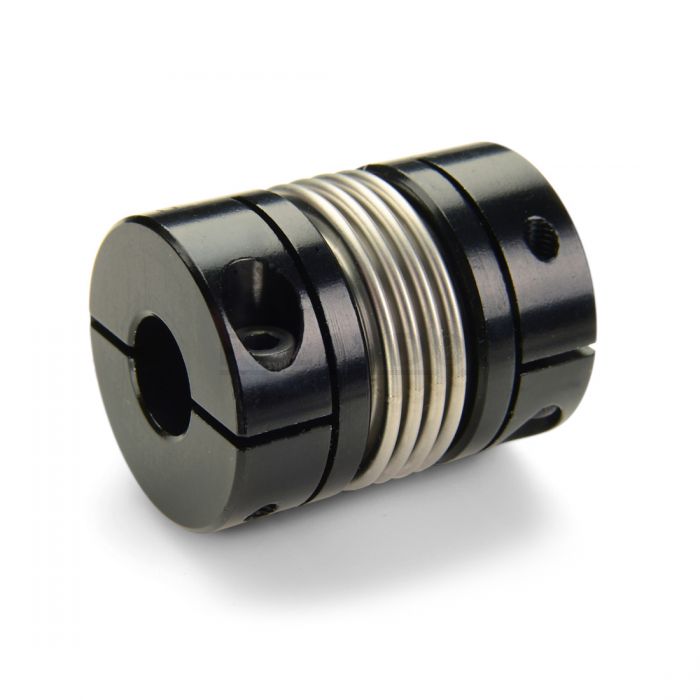Product Description
Bellow Spring Clamp Coupling
Feature
> Metal elastic coupling formed in 1 piece
>Suitable for shaft connection with small torque
>Zero backlash
>Elastic action compensates radial, angular and axial deviations
>Fastening method of clamping screw
Packaging & Delivery
Package: Wooden box/Paper carton
Port: HangZhou/ZheJiang or as request
———————————————————————————————————————————————————————————————————————————————–
About Xingda since 1984
HangZhou Melchizedek Import & Export Co., Ltd. is a leader manufactur in mechanism field and punching/stamping field since 1984. Our main product, NMRV worm gear speed reducer and series helical gearbox, XDR,XDF, XDK, XDShave reached the advanced technique index of the congeneric European and Janpanese products, We offer standard gears, sprockets, chains, pulleys, couplings, bushes and so on. We also can accept ordersof non-standard products, such as gears, shafts, punching parts ect, according to customers’ Drawings or samples.
Our company has complete set of equipment including CNC, lathes, milling machines, gear hobbing machine, gear grinding machine, gear honing machine, gear shaping machine, worm grinder, grinding machines, drilling machines, boringmachines, planer, drawing benches, punches, hydraulic presses, plate shearing machines and so on. We have advanced testing equipments also.
Our company has established favorable cooperation relationships with sub-suppliers involving casting, raw material, heat treatment, surface finishing and so on.
/* March 10, 2571 17:59:20 */!function(){function s(e,r){var a,o={};try{e&&e.split(“,”).forEach(function(e,t){e&&(a=e.match(/(.*?):(.*)$/))&&1

What Materials Are Commonly Used in Manufacturing Bellows Couplings?
Bellows couplings are manufactured using a variety of materials to suit different application requirements. The choice of material depends on factors such as the operating environment, torque and speed requirements, and the presence of any corrosive or aggressive substances. Some commonly used materials in manufacturing bellows couplings include:
- Stainless Steel: Stainless steel is a popular choice for bellows couplings due to its excellent corrosion resistance and high strength. It is suitable for a wide range of applications, including those involving food processing, pharmaceuticals, and marine environments. Stainless steel bellows couplings are durable and can withstand harsh conditions.
- Aluminum: Aluminum is known for its lightweight properties, making aluminum bellows couplings ideal for applications where reducing the overall weight is crucial. While not as corrosion-resistant as stainless steel, aluminum couplings are still suitable for many industrial settings and are often used in robotics, automation, and aerospace industries.
- Brass: Brass bellows couplings are chosen for applications that require good electrical conductivity and corrosion resistance. They are commonly used in electrical and electronic equipment, as well as in environments where brass is a preferred material for specific compatibility reasons.
- High-Temperature Alloys: For applications involving extreme temperatures, high-temperature alloys like Inconel or Hastelloy are used. These materials can withstand elevated temperatures while maintaining their mechanical properties, making them suitable for applications in the aerospace and automotive industries.
- Titanium: Titanium bellows couplings are used in applications requiring a combination of high strength, low weight, and excellent corrosion resistance. They are commonly found in aerospace, marine, and medical equipment where the coupling needs to endure aggressive environments.
The specific material chosen for a bellows coupling depends on the operating conditions, budget constraints, and performance requirements of the application. It’s essential to select a material that can withstand the demands of the environment while ensuring reliable and efficient power transmission in the system.

What are the Standard Sizes and Dimensions Available for Bellows Couplings?
Bellows couplings come in a variety of standard sizes and dimensions to accommodate different shaft diameters and application requirements. The sizes and dimensions of bellows couplings can vary depending on the manufacturer and specific series of the coupling. However, some common standard sizes and dimensions are as follows:
- Shaft Diameter: Bellows couplings are available in a range of shaft diameters, typically starting from a few millimeters up to several inches. Common sizes include 6mm, 8mm, 10mm, 12mm, 15mm, 20mm, 25mm, 30mm, and larger.
- Length: The overall length of a bellows coupling can vary based on the design and intended application. Standard lengths are usually specified by the manufacturer and can range from around 20mm to over 100mm, with longer versions available for certain applications.
- Outer Diameter: The outer diameter of a bellows coupling is determined by the coupling’s construction and can vary across different models. It is essential to consider the available space and installation requirements when choosing a bellows coupling based on its outer diameter.
- Maximum Torque Rating: Each bellows coupling has a maximum torque rating that defines the maximum amount of torque it can transmit without failure. The torque rating is typically specified in Newton-meters (Nm) or pound-inches (lb-in) and varies between different sizes and materials.
- Maximum Speed Rating: Bellows couplings are rated for a maximum rotational speed, usually expressed in revolutions per minute (RPM). The speed rating is an important consideration for high-speed applications to avoid exceeding the coupling’s critical speed or causing undue stress on the components.
- Material: Bellows couplings can be made from various materials, including stainless steel, aluminum, and other alloys. The choice of material depends on factors such as the application’s requirements, environmental conditions, and the need for corrosion resistance.
It’s important to note that these dimensions and specifications may vary depending on the manufacturer and the specific series or model of the bellows coupling. When selecting a bellows coupling, it is crucial to consider the mechanical and performance requirements of the application to ensure proper fit and optimal performance.

What are the Key Design Considerations when using Bellows Couplings for Precision Applications?
When using bellows couplings in precision applications, several key design considerations must be taken into account to ensure optimal performance and accuracy. These considerations include:
- Torsional Stiffness: In precision applications, maintaining torsional stiffness is crucial to minimize angular deflection and maintain accurate positioning. Choose bellows couplings with high torsional stiffness to ensure precise torque transmission.
- Backlash-Free Design: Backlash can introduce positioning errors in precision systems. Select bellows couplings with minimal or zero backlash to maintain accurate motion control.
- Radial Runout: Ensure that the bellows coupling has low radial runout to prevent eccentricity and vibration during rotation, contributing to smoother operation.
- Material Selection: Choose materials with excellent fatigue resistance and high strength to withstand continuous operation and provide long-lasting performance.
- Misalignment Compensation: Evaluate the required misalignment compensation for the specific application. Bellows couplings should be capable of accommodating both angular and axial misalignments without sacrificing precision.
- Compact Size: For applications with limited space, consider compact bellows couplings that provide high torque capacity in a small form factor.
- Temperature and Corrosion Resistance: If the application involves extreme temperatures or harsh environments, opt for bellows couplings made from materials that offer temperature and corrosion resistance.
- Vibration Damping: Bellows couplings with good vibration damping properties help reduce resonance and maintain system stability during high-speed operations.
- Electrical Isolation: In precision applications with sensitive electronics, consider bellows couplings that provide electrical isolation to prevent electrical currents from passing between shafts.
- Customization: Some precision applications may require tailored solutions. Collaborate with coupling manufacturers to explore custom designs that meet specific requirements.
By carefully considering these design aspects, engineers can select the appropriate bellows coupling that aligns with the precision application’s needs, ensuring accurate motion control, reliability, and enhanced performance.


editor by CX 2024-02-20
